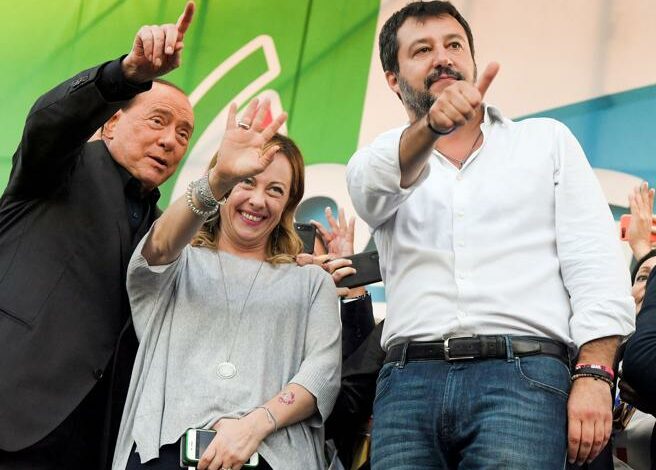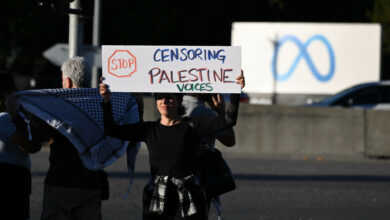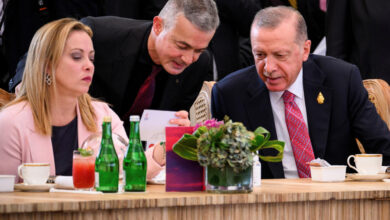Italy can’t hide serious division on Russia within ruling coalition

Since last September, Italy’s ruling coalition has been under the shadow of a serious split on the War in Ukraine. As the war outlasts Italy’s ability to hide these splits, the shadow of political instability knocks again at the doors of the Mediterranean country, this time coming from Eastern Europe.
On her journey to take office, Italy’s PM Giorgia Meloni articulated her firm support to Ukraine in their war against Russia and her commitment to the NATO alliance. Her stance on this issue, which carries a Globalist weight contradictory to her nationalist discourse in Italy, has collided with that of some of her alllies, particularly Matteo Salvini and Silvio Berlusconi, both admirers of Russian president Vladimir Putin, even before this government was born.
Earlier last summer, Matteo Salvini, leader of right-wing Lega, which signed in 2017 a cooperation agreement with the United Russia party of President Putin, criticized the EU sanctions against Russia as more harmful to the EU than to Russia. In 2014, he supported Russia’s annexation of Crimea.
Berlusconi, leader of Foza Italia which is part of the ruling coalition, has been creating much embarrassment for Meloni with her foreign allies by boasting about his personal friendship with President Putin and questioning the Western involvement with Ukraine.
Yesterday, Berlusconi added to this embarrassment when he blasted President Meloni for meeting on Tuesday in Brussels with President Volodymir Zelenskyy of Ukraine, saying he would not have done it had he been in her place.
He went on to blame President Zelenskyy for the devastation of his country.
“We are witnessing the devastation of his country and the slaughter of his civilians and soldiers. It would have been enough for him to stop attacking the two autonomous republics of Donbass and all this would not have happened. I have a very negative view of this person,” Mr. Berlusconi said.
In response, the Italian government issued a statement on Sunday affirming its “convinced” and “firm” support to Ukraine. Ukraine’s Foreign Ministry spokesman Oleg Nikolenko responded to the three-time prime minister of Italy by saying that Berlusconi is “kissing Putin’s bloody hand.”
In a recent article I discuss Meloni’s play on words and contradictory discourse as she has seemed to try to reassure two contradictory forces: the local nationalists and the Globalist elite. Her allies’ pro-Russia statements are comforting to the former but alarming to the latter. The upcoming days will bring more tests to Meloni’s capacity for speaking many languages.
So far, the effects of the war division on government stability can be contained but they seem to have reached their limit to spare Italy the risk of going back to political instability in case this war escalates in Eastern Europe or at the international stage in such a way as to require the Italian government to be more deeply involved, for involvement in such large-scale wars is a one-way ticket.
There is also a less likely alternative scenario to a deeper Western involvement, which is the end of the war with a peace treaty or with Russia’s victory. Russia is preparing for a large-scale offensive soon. In case it ousts Zelensky’s government, as Berlusconi claims it just intends to do, Berlusconi might reverse the power balance with Meloni in Italy. In case the war resolves with a cease-fire, a peace treaty, a long-term truce, or a simple agreement between the world’s superpowers, Meloni can play the EU card, which she often lashed, simply because she speaks many languages.




